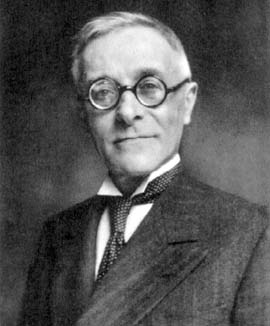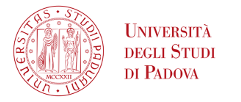Presentation
The Department of Mathematics of the University of Padua is named after Tullio Levi-Civita, formerly a student and later a professor at the University of Padua. The department hosts around 120 faculties, 50 PhD students and over 30 postdocs, both in Mathematics and in Computer Science, and benefits from the constant presence of several visiting scholars from all over the world.
It is one of the largest and most prominent departments in Italy in the areas of Mathematics and Computer Science. It combines in the same community and in the same building researchers who are active at a high level in almost all areas of the two disciplines.
The department organizes bachelor and master programs in Mathematics and Computer Science and a master program in Data Science, and is a member of the international network “ALGANT”. The students’ population consists of about 1500 people. Furthermore, the department provides almost all the basic courses in mathematics for over 10000 students from the entire University.
The department promotes an intensive exchange activity of international scholars and students, and is active in the organization of international conferences, in innovative teaching and video lectures, continuing education for teachers, and popularization. Furthermore, the department supports the collaboration with research institutes and industrial partners.

The name of the Paduan mathematician Tullio Levi-Civita is worldwide famous mainly because of the “parallel transport”, a notion he introduced in 1919 and which gave rise to a fundamental chapter of Differential Geometry: the theory of Connections. Tullio Levi-Civita was born in 1873 in Padua and was a student in Mathematics and later (1897-1919) a professor in our University. With his teacher Gregorio Ricci-Curbastro, Levi-Civita had built, at the beginning of the century, the so-called Absolute Differential Calculus, without which, in the words of Albert Einstein, no Theory of General Relativity would exist. Actually, in the Spring of 1915, the great German physicist exchanged a number of letters with Levi-Civita, in which the latter pointed out an error in the formulation of the gravitational tensor. After resisting the arguments of the mathematician, in the last letter Einstein acknowledged the drawback and thanked gratefully Levi-Civita (“spaghetti and Levi-Civita” was the answer of Einstein once he had been asked about what he loved the most about Italy). Many others were the areas investigated by Levi-Civita, both in pure and applied mathematics. Always, his results were crucial and characterized by a great care in expressing ideas with clarity.
In 1938 he was victim of Italian racial discrimination under the Fascist regime: he was expelled by all Italian scientific institutions because he was Jewish. Nothing can cancel such a crime against humanity and intelligence. Our Department is honored to be named after this great scientist and man, and in his name pursues the values of rationality and human solidarity.





